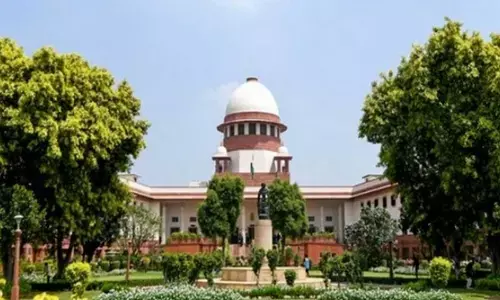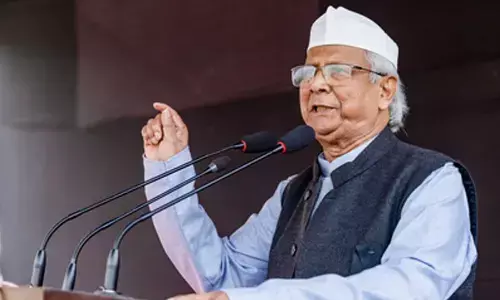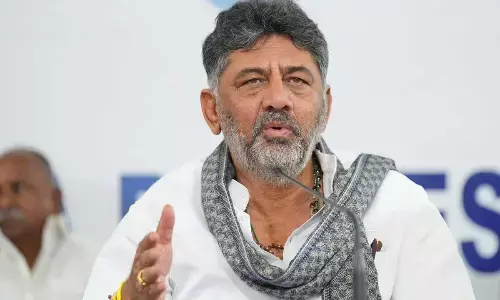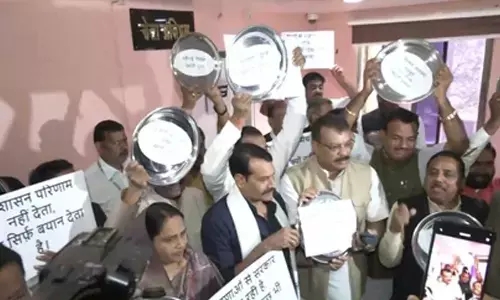Black gram farmers on cloud nine as prices rise
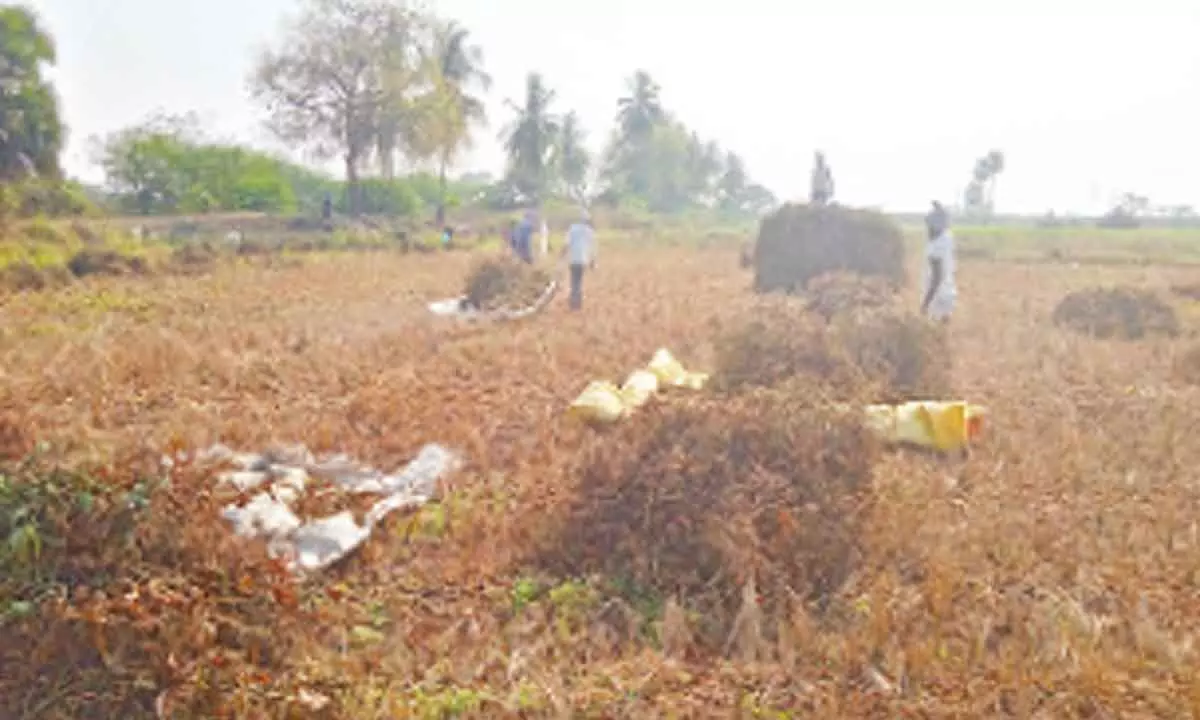
Krishna delta farmers opt for black gram crop instead of paddy due to water scarcity
Vijayawada: Farmers of Krishna Delta who cultivated black gram (minumulu) in the rabi season are expected to earn huge profits this year as the produce is fetching good price owing to increased demand across the country. Traders and middlemen are offering around Rs 1,000 to Rs 1,500 more than the minimum support price of Rs 6,600 a quintal. It should be noted that due to a lack of water supply, the Krishna delta farmers whose main crop is paddy were forced to cultivate pulses like black gram and green gram during every rabi season. A decade ago, farmers used to cultivate pulses, gingelly and mustard crops as third crop after harvesting rabi paddy between March and June.
But as water supply is not adequate for rabi, the farmers had to choose black gram as the main crop in the rabi instead of paddy. They incurred losses in pulses cultivation as they have no experience in crop management like choosing good variety of seeds, using pesticides and fertilisers. But now they appeared to have overcome hurdles and are looking at prospect of good returns.
The time and cost for cultivation of pulses is less compared to paddy. For paddy, they have to spend Rs 30,000 as investment for an acre as against Rs 10,000 for pulses. Moreover, in some lands, tenant farmers need not to pay rent to landlord if he goes for black gram or green gram. As per the official data, Krishna Delta has around 13.07 lakh acre, of which during every kharif season, farmers cultivate paddy in about 10 to 11 lakh acre. On the other hand, paddy cultivation is decreasing every rabi because of water scarcity and other reasons.
Some farmers choose pulses while some others prefer other commercial crops. A few others leave their land vacant to rejuvenate for kharif. According to agricultural authorities, black gram, green gram was cultivated in around 3.50 lakh acre in the Krishna Delta which comprises erstwhile Krishna, Guntur, West Godavari and Prakasam district. Krishna district agriculture joint director Manhohara Rao said that during this year's rabi season, the black gram was cultivated in 2.63 lakh acre, green gram in 10,000 acre and maize in another 15,000 acre in Krishna district.
The black gram farmers are on cloud nine this year as scenario is upbeat on both production as well as price fronts. A minimum of five quintal and maximum of 15 quintal black gram is produced in one acre land. At present, one quintal black gram costs more than Rs 7,600 which is highest in recent years, significantly more than the Minimum Support Price (MSP) of Rs 6,600. Owing to higher price in the market, farmers are earning Rs 25,000 to Rs 50,000 per acre depending on the yield.
Kagitha Krishna, a farmer of Konkepudi village in Pedana nandal, said that they were selling their crop at Rs 7,600 to private traders. He pointed out that that the government has not been buying the black gram for many years. Hence, they have to sell their produce to traders/middlemen.
D Murali Krishna, Andhra Pradesh State Cooperative Marketing Federation Ltd (AP Markfed), Krishna and NTR district manager, said that farmers were not approaching them as they were getting higher price than MSP from private buyers. He further said that if the farmers were not given MSP, they Markfed will procure the crop at MSP. "We are making arrangements for procurement of pulses, if necessary. The government is offering Rs 6,600 per quintal of black gram," he added.



